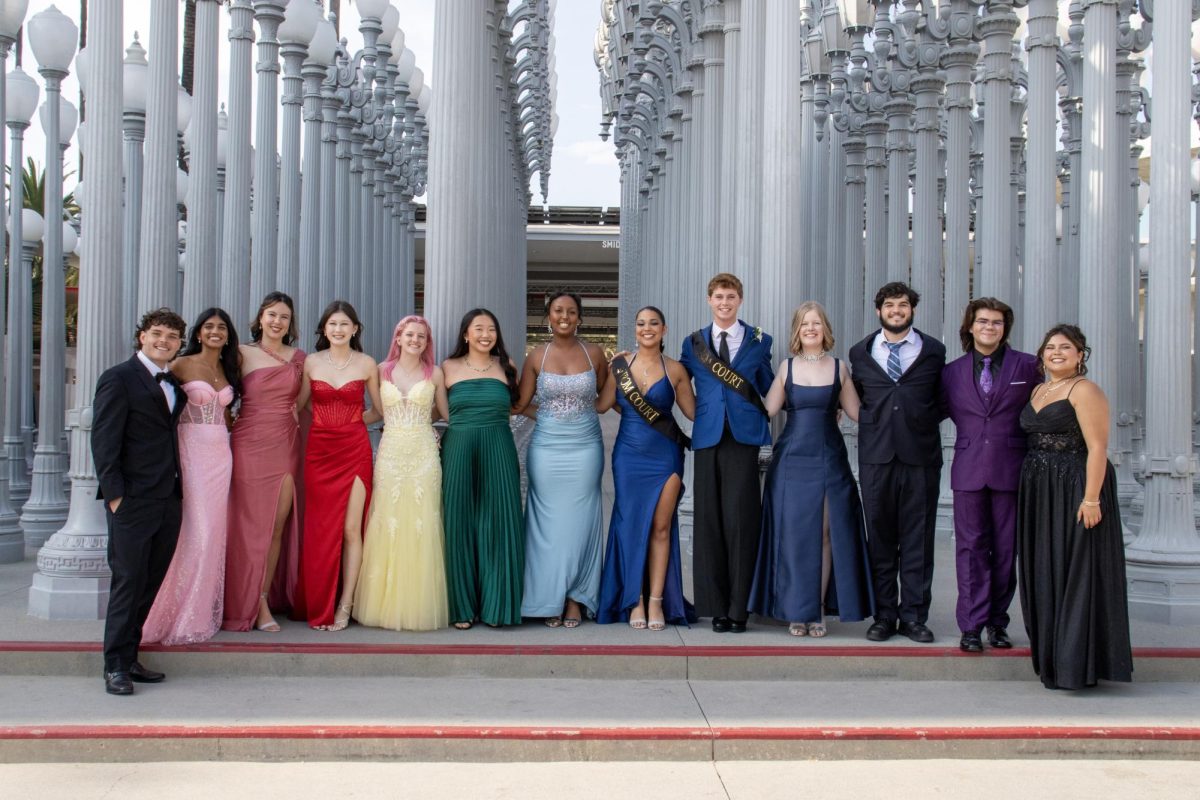Change to Stop Climate Change
October 22, 2019
Every year, we’re hit with a barrage of headlines, reports, and statistics about climate change. Every year, we see devastating forecasts and protests and calls to action, because every year, the world grows a little warmer. And maybe the polar ice caps haven’t fully melted. The coral reefs haven’t fully died. Los Angeles isn’t fully submerged. But every year, the world is faced with the same facts. Every year, we dab at our eyes and gasp at the numbers and think that maybe it’s time to do something. But every year, we wait and wallow and warm, all while the scientists and the facts scream at us. It has never been the right time to do something, because the right time was decades ago. But the best time we have is now. And I mean now.
2019 has been a whirlwind of a year for climate change. In May, the United Nations released a landmark report warning us that one million species are threatened by extinction as a result of global warming. In the last few months, as we approach the 2020 presidential election, climate change has taken a major role as one of the primary concerns of voters and candidates. And finally, in headlines and on the covers of Time magazine, is Greta Thunberg, a 16-year-old activist who’s become internationally recognized. Climate change has been at the forefront of global issues, protests, and the media; it’s seeped into popular culture in the form of metal straws and VSCO girls and Hydroflask stickers. But in a way, I think we’ve become desensitized to the idea of global warming.
We’ve seen so many startling statistics and so much distressing data that the facts have stopped being so distressing. They aren’t direful, or disconcerting, or disquieting, or dreadful, or any other negative word you can scrounge up from the deep recesses of a thesaurus. Not anymore. I know I’m not the only one that wasn’t surprised when the UN report on biodiversity wrote that one million of Earth’s unique species are in danger. I wasn’t surprised in Biology class when I learned that optimistic forecasts still predict sea level rise and consistently increasing carbon dioxide levels for centuries after hypothetical change. A short story in an issue of MIT Technology Review spoke about a girl in the future, in a near post-apocalyptic world, and I thought the story was nice. That was all. Our sense of urgency has fled. Our need for change has quieted.
No more, have said too many people, and we all sit and nod, all while not really committing to real change. You might go to an environmental protest, but who’s keeping track of the trash left by the protesters? You might scold the older generations for their lack of action, but how have you taken direct action?
We all agree that exposure is important for any issue; we need to talk about it, we need to brainstorm ideas, we need to protest and raise our voices. But talk can only do so much; climate change is not an issue that is going to be solved by doing little acts of kindness. The environment is not going to be protected by an army of metal straw-equipped teenagers. Putting trash in a trash can and feeling good about yourself is not going to result in massive, global change. Climate change is going to be solved―if it is ever solved―by many people, on multiple levels, working together in a unified effort. Climate change, put simply, is going to be solved by change. It will take a revolution to change mindsets and a transformation to change forecasts. Humans are awfully good at talking but fairly terrible at changing.
You might say it’s ironic that I sit at a computer, lecturing you about climate change, writing about an issue while I could be moving the world toward something better. You’d probably be right, too. I’m one of the worst people to ask about climate change. For all the words that I can throw at you, I really, really enjoy taking hot showers, I still use soap with microbeads, and I’m terrible at remembering to turn off lights. But I think I represent a lot of people; so many of us are terribly informed while remaining unchanged and apathetic. It’s a fight to try and care about something that likely won’t affect me while I’m alive. I’m human. I probably won’t stop eating meat or taking long showers anytime soon.
In some way or another, we tell ourselves that we’re good people; that we’re doing good because we care enough to be informed, that at least we know enough. We console ourselves with the notion that the other seven billion people in the world will fix the problem in one way or another. But in some other way, I’m a part of a group of the worst of us. We know enough of the problem and yet procrastinate in change. We see the evidence before us but lack the conviction to do something other than talk.
I’m starting to realize that being aware of climate change is enough to put a responsibility on me: a responsibility to do my part, to be a part of something bigger. I’m starting to realize how human, how selfish, how stubborn I am. But I want to change. And I think a lot of us do. We have to try, after all. First to change ourselves, then to change the world.




